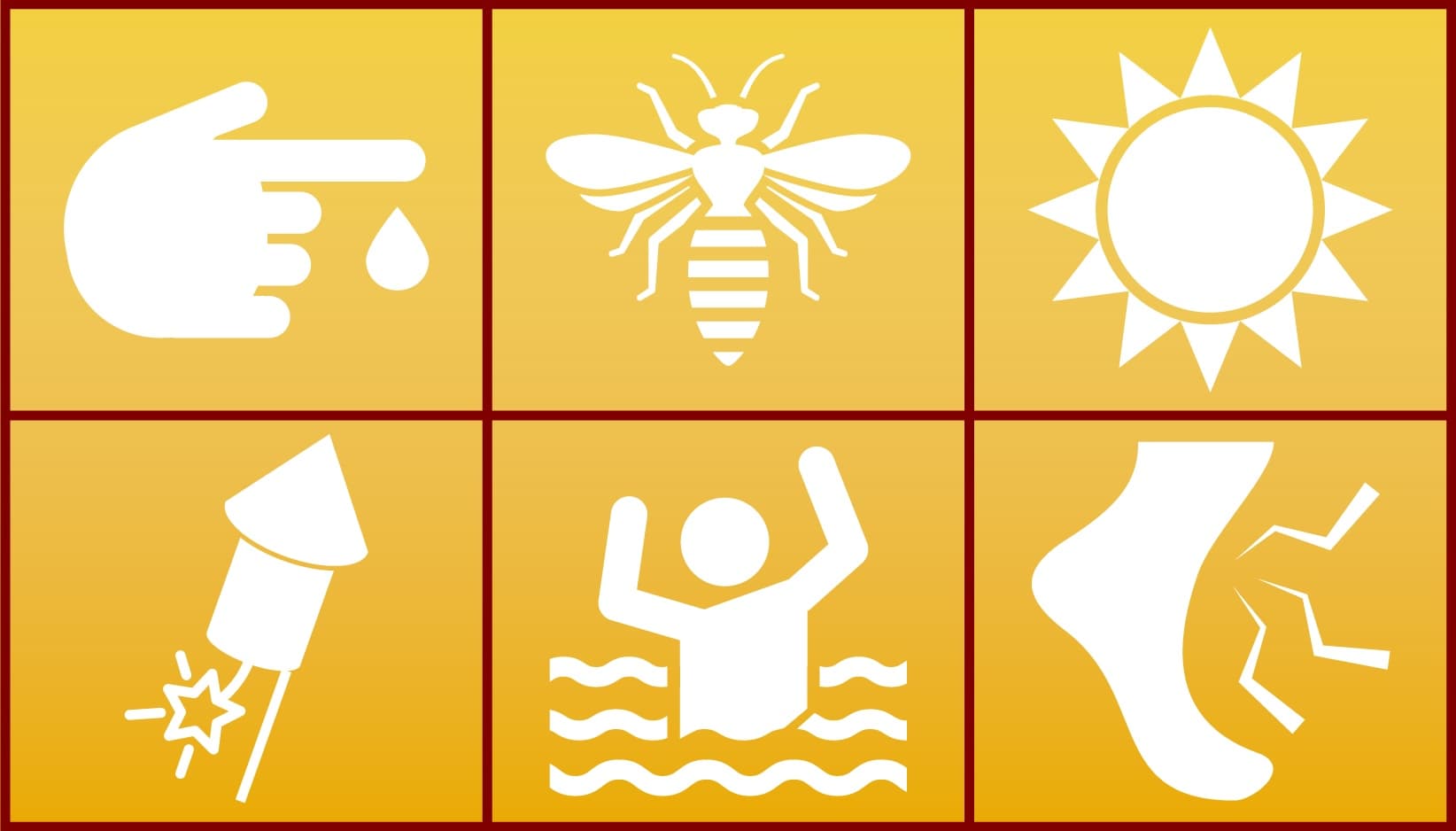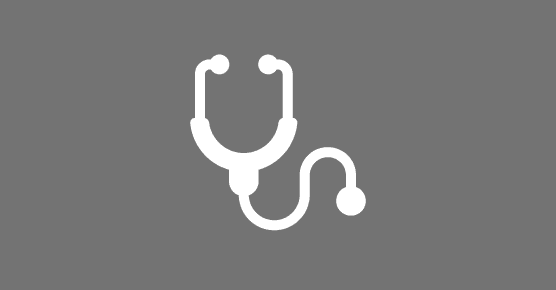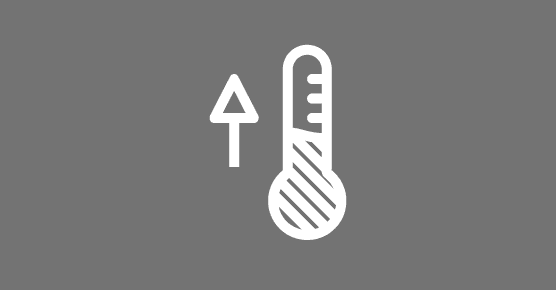Summer safety tips: How to avoid heat stroke, sunburn, drowning, fireworks injuries and more

During hot summer months, the potential for injuries caused by things like heat, outdoor activity and fireworks is high.
As a pediatric emergency medicine doctor and a surgeon who specializes in complex burn care, we want to help you enjoy the warm season responsibly — and know what to do if an injury or illness does occur.
Some issues can be treated at home (call your primary care doctor for non-emergencies). Others may require a visit to an urgent care clinic, which provides same-day treatment for colds, cuts, sprains and more.
Serious symptoms may require help from an emergency department.
Here are some summer safety tips, including information on how to treat illnesses at home versus when you should seek professional medical care.
What are the top heat-related medical issues for children?
The most common heat-related medical issues are:
- Sunburn
- Heat rash
- Heat cramps (mild overheating)
- Heat stroke (mild to moderate overheating)
- Heat exhaustion (extreme overheating)
What are the most dangerous heat-related medical conditions?
Heat stroke and heat exhaustion are the most serious conditions and can be life-threatening, but all of the conditions listed above can be worrisome for you and your family.
How can I prevent heat stroke?
Always be careful about spending too much time outside in the heat and sun, and take breaks in the shade or indoors frequently. Make sure your child stays hydrated and wears lightweight clothing.
Be especially careful in parked cars. Cars can be more than 30 degrees warmer inside than the outside air. Do not leave your children in the car waiting for you, even for a few minutes. The majority of heat stroke cases that we see in the emergency department result from parents leaving children in the car.
Additionally, parents should be careful in the warmer months to not over-bundle their babies, who need only one more layer of clothes than what an adult would be comfortable wearing.
When should I call for help for heat stroke symptoms?
Here are some signs and symptoms that should be cause for concern and lead to prompt medical evaluation:
- Skin that is hot, red, dry or particularly damp
- Headache
- Dizziness
- Nausea and vomiting
- Confusion
- Loss of consciousness
- Severe muscle cramping
- A body temperature of 103 degrees Fahrenheit or higher
Even if these symptoms seem mild, you should call your doctor or seek medical care.
Also, if you have a known history of heart disease or diabetes, are very young, elderly or have a history of heat-related illness, you need to be extra cautious.
Do I need sunscreen? How long does sunscreen last?
Everyone, regardless of their skin color or tone, should wear broad-spectrum sunscreen. Using sunscreen protects your skin from harmful ultraviolet (UV) rays, which can lead to skin damage, premature aging and cancer. Make sure to reapply every couple of hours, or more frequently if you are sweating or swimming.
How do I treat sunburn?
Even with protection or on cloudy days, sunburn can happen. It can usually be managed at home. Try to stay out of the direct sun, especially at midday, and to wear cool clothes that cover exposed skin.
If sunburn occurs, a cool oatmeal bath and moisturizing lotions specific for sunburn can help relieve pain.
If your skin starts blistering, you should call your doctor or visit an urgent care facility. If the blisters cover more than 20 percent of your body, or if you feel confused, dizzy or nauseated, you should call 911 and/or go to an emergency department.
How do I prevent heat exhaustion?
Keeping cool on hot days is one of the most important factors in preventing heat-related illness. Wear light, loose-fitting clothing. Drink water early or often. Don’t wait until you are thirsty to hydrate.
Air conditioning can help, even for short periods of time. If possible, stay in an air-conditioned area during the hottest hours of the day. If you don't have air conditioning in your home, go to a public place such as a shopping mall or a library to stay cool. Cooling stations are also available throughout the city for people of all ages.
At home, keep fans running, and use a wet washcloth to cool the skin. Aim the breeze from your fans over yourself and any overheated family members.
You should avoid long periods of hard work or activities if you are outside or in a building without air conditioning. Take breaks frequently, and stay hydrated. Studies have found that fatal consequences can result from working outdoors, even at temperatures in the high 80s, so pay attention to overheating.
Finally, never leave any person or animal in a non-ventilated, parked car, as temperatures can rise very quickly.
What should I know about fireworks safety?
Illinois is one of a handful of states in the country that bans the sale and use of consumer fireworks (e.g., firecrackers, Roman candles and bottle rockets).
But every summer, University of Chicago Medicine's Burn Center and Comer Children’s Hospital Pediatric Emergency Department treats children with injuries related to illegal fireworks and legal novelty fireworks such as sparklers, smoke bombs and noisemakers.
From minor burns to catastrophic life-changing wounds, these injuries can result in the need for multiple surgeries — including amputations and skin grafts — and require hospitalization and/or stays in the intensive care unit.
According to the US Consumer Product Safety Commission, fireworks were involved with an estimated 9,700 injuries and eight deaths in 2023. Two-thirds of those injuries occurred between mid-June and mid-July, and these are preventable injuries.
Our recommendation, first and foremost, is to avoid the personal use of any illegal or legal fireworks. As least half of all injuries happen to bystanders.
How can I use fireworks safely?
We do not recommend using fireworks at all. However, if you are planning on using sparklers, noisemakers or smoke bombs, we recommend the following precautions:
- Only responsible, sober adults should handle these devices.
- Stay at least six feet from the person lighting a sparkler or smoke bomb.
- Light one firework at a time.
- Move away quickly after lighting any device.
- Hold sparklers away from the body and face. The tips of sparklers are 1,800 degrees; they should never be held by children.
- Have a bucket of water, hose or fire extinguisher nearby.
- Never point fireworks toward another person.
- Never light fireworks in a container or indoors.
- Never light fireworks, including sparklers, near anything flammable.
- Never relight or pick up fireworks that fail to go off.
If you are injured, or if there is fire, stop, drop and roll to decrease the burning process. Immediately seek medical treatment from your primary care physician or an emergency room.
How do I treat a bee sting?
Most bee stings can be treated at home. You can remove the stinger with a dull knife or credit card, but do not squeeze or use tweezers, as it will spread the bee venom. Apply aloe vera gel, calamine lotion and/or ice to the sting site to relieve pain and itch.
If you can’t control the reaction, if you develop hives at the sting site, or if you can’t remove the stinger, it’s best to visit urgent care. For severe hives or throat/tongue swelling, call 911 and/or go straight to an emergency department.
If you or a loved one has a known bee sting allergy, do not forget to keep your epinephrine (EpiPen) injector on hand and use it in case of a bee sting.
How do I prevent a mosquito bite?
To avoid mosquito bites, which are more common during the warmer months, we recommend using EPA-registered insect repellants, along with wearing clothing that limits areas of exposed skin. Limit standing water around your home in places like rain gutters, along with aiming to replace water in bird baths and fountains weekly.
If you’re in areas with higher mosquito populations, you might want to consider using head netting.
How do I treat a mosquito bite?
Most times, mosquito bites are simply pesky and uncomfortable. To help relieve some of the itching, you can wash them with soap and water and apply a calamine lotion or a paste mixture of one tbsp of baking soda and a few drops of water. Avoid hot showers, rubbing or scratching.
If you develop a rash around the bite that is warm to the touch, it is best to call your pediatrician or get it checked out at an urgent care facility.
How do I remove a tick?
Remove the tick quickly and completely with a tick removal tool or tweezers. If you have fever, chills or body aches, call or visit your doctor. If you cannot remove some or all of the tick, call your doctor or visit urgent care within 36 hours to receive a one-time drug dosage to help prevent Lyme disease.
How do I treat minor cuts and scrapes at home?
For smaller cuts and scrapes, apply pressure to the affected area until bleeding stops. Gently clean the wound with soap and water, and then apply antibacterial ointment and a bandage. If bleeding doesn’t stop with pressure, call your doctor or visit an urgent care facility. A doctor may provide sutures and a tetanus shot, if needed.
How do I treat sprains at home?
For minor sprains, use the RICE (rest, ice, compression, elevation) method and over-the-counter pain medications like acetaminophen or ibuprofen. If bruising, swelling or pain of the injured area increases, or if you can’t bear weight on it call your doctor or visit urgent care.
How can I prevent drowning?
The best way to prevent drowning is to always supervise children when they are swimming. Make sure you designate one responsible, sober adult to supervise. If it is your turn to watch swimmers, this means putting down a phone, book, or any other potential distraction.
Never assume someone else is watching your child.
If you are outside in a lake, pond or river, it is good to familiarize yourself with specific surroundings, since wildlife, rocks, currents and other potential dangers differ in lakes, rivers and other areas.
In addition to swim lessons, make sure you have Coast Guard-approved life jackets on hand. Most of the cute arm floaties and inflatable devices may act as swim aids, but they are not designed to keep peoples' faces up and out of the water the way life jackets do. But remember, life jackets shouldn't replace supervision!

Alison Tothy, MD
Alison Tothy, MD, is associate professor of pediatrics in the pediatric emergency medicine department at Comer Children’s.
Learn more about Dr. Tothy
Sebastian Vrouwe, MD
Sebastian Vrouwe, MD, is a highly skilled plastic surgeon who specializes in complex burn care.
Learn more about Dr. VrouweWhere Should I Go for Care Today?
You never know when a sudden injury or illness may happen. That's why it's so important to be prepared and know what steps you can take as soon as symptoms appear. Click below to learn more about the best times to visit primary care, urgent care or the emergency department.

When should I contact my primary care doctor?
Your regular doctor is the best person to call for minor health issues because they know your medical history.

Virtual Care
Instead of waiting for an appointment, you can now be seen virtually when urgent but non-life-threatening situations arise.

When should I seek emergency care?
If you have severe symptoms that could be life-threatening, call 911 or go to the emergency room right away.
